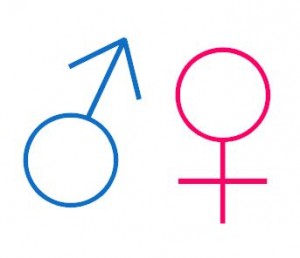Gender in Pashto Posted by Sayed Naqibullah on Dec 19, 2012 in Uncategorized
In Pashto the words have gender. They are either masculine or feminine depending on the letters of the word or the meaning of the words. In order for a Pashto sentence to be correct it needs to follow the gender rule. The noun, the adjective, and the verb need to agree in gender and number. In this post we will give you an overview of how the gender agreement works in Pashto.
In Pashto, there are rules that can help you understand whether a noun or a verb is feminine or masculine, for example, most of the nouns ending in the letter ه “a” in Pashto are feminine and the same goes with the adjective. So there isn’t a lot to worry about while determining the gender of a noun or adjective in Pashto and once your ears are familiar with the sounds then it will be easier to determine. Of course, there are more rules about determining the gender of the word but I am giving you a general overview.
As long as the gender of verbs is considered, I believe that it is not very challenging to change a verb from one gender to another because more often than not, the verb stays the same. It is mainly the past tense in Pashto that requires a gender agreement. In Present tense verb, the gender of the verb does not change. There are specific rules that make it very easy to change the gender of the verb. For instance, Maa waleeda-“I saw him.” vs Maa waleedala.-“I saw her.” In the first example the verb is used for masculine and it is Waleeda and in the second sentence the verb is used for feminine and it is waleedala. The only difference as you can see is that an la added to the end of the feminine verb. The following are some words both in their masculine and feminine forms. Please pay close attention to the difference highlighted. Also, watch the video for further explanation.
Masculine Feminine Meaning
بوډا boodaa بوډۍ Boodai Old man/Old woman
کلک klak کلکه Klaka hard
جګ jag جګه jaga tall
ولید waleeda ولیدله waleedala saw him/saw her
لاړ laarr لاړه laarra he went/she went
راغلل raaghlal راغللې raaghlalay they (male) came/ they (female) came

Build vocabulary, practice pronunciation, and more with Transparent Language Online. Available anytime, anywhere, on any device.
About the Author: Sayed Naqibullah
Sayed Naqibullah speaks Pashto and Dari as his native languages. Since 2004 he has been teaching Dari and Pashto and working as cultrual advisor to NGO workers, foreigners who live, work, or are visiting Afghanistan. Sayed has worked as a linguist for several companies that produce language course-ware. He has worked as a guide, interpreter and translator of a number of NGOs working in Afghanistan. Sayed is also a blog writer on Afghan culture and languages. He is the author of a Dari language textbook called “Dari as a Second Language”.




